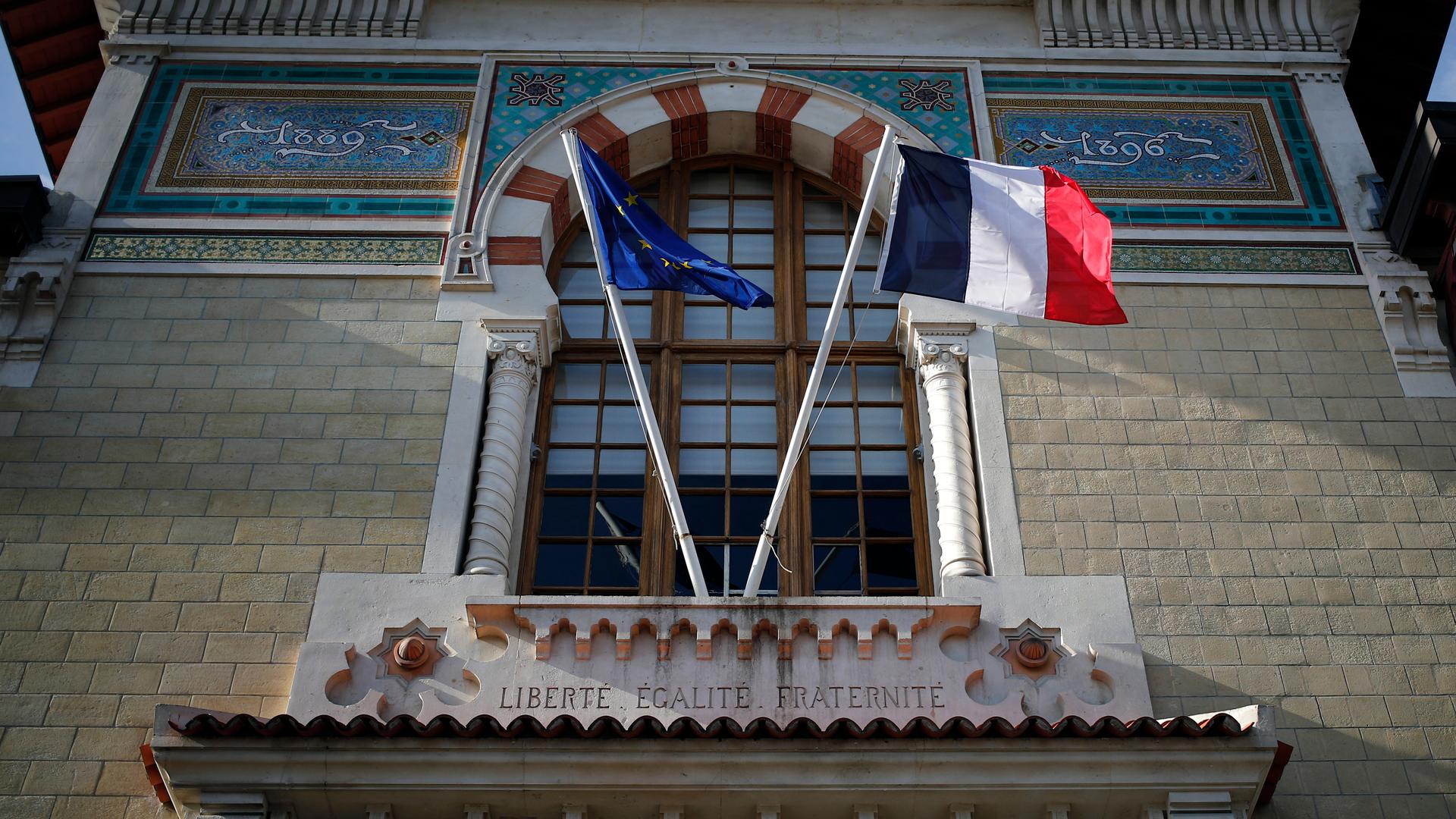For many years, critics have condemned elitism in higher education.
In the United States, there’s been talk about scrapping standardized tests like the SATs and ACTs, which critics say favor the white middle and upper classes.
In France, President Emmanuel Macron is taking things a step further.
In April, Macron officially ordered the definitive closure of L’Ecole Nationale d’Administration (l’ENA), one of the country’s most elite schools.
The announcement wasn’t a total surprise. Macron first hinted at the closure two years ago during a town hall meeting.
This was at the height of France’s “yellow vest” protests, a movement that attacked Macron as a “president of the elite,” with an administration that was out of touch with the everyday needs of the country’s working class.
About 30% of Macron’s cabinet are l’ENA alumni.
“We need to abolish l’ENA and build something better,” Macron said during the town hall.
Now the school’s 2021 cohort will be its last.
Related: What the US can learn from other nations with free college tuition
The alma mater of three of France’s last four presidents — including Macron — l’ENA was founded by Charles de Gaulle at the end of World War II.
De Gaulle’s vision: Train future generations of the country’s top civil servants, or managers, in the public sector.
“[Charles de Gaulle] really wanted the senior civil service in France to be truly representative of the entire population. … But on that level — l’ENA was actually a total failure.”
“He really wanted the senior civil service in France to be truly representative of the entire population,” said Benoit Floc’h, who writes about education for the French newspaper Le Monde.
“But on that level — l’ENA was actually a total failure.”
While admission to l’ENA is technically merit-based, less than 1% of the 2020 cohort came from a working-class background.
“Generally speaking, it’s always been a school of the bourgeoisie,” Floc’h said.
Related: What is ‘Islamo-leftism,’ France’s topic du jour?
Adeline Baldacchino was part of the exception when she was admitted to l’ENA 14 years ago.
“L’ENA was something very distant, very difficult to have access to.”
“L’ENA was something very distant, very difficult to have access to,” said Baldacchino.
The daughter of a bank teller and a homemaker, after college she took the risk and applied anyway, per the advice of her teachers.
“It was something very intriguing and at the same time, something very attractive, because in a sense, it made you think that if you could go there, then you would have a very interesting job at a high level, and then maybe you could even change the world, or at least France, and how it works,” she said.
But once she got into the school, Baldacchino said she was disappointed by the course material — or lack thereof.
“…[I]n terms of a real training, in terms of content, it was not good at all.”
“It’s more like a place where you meet people, build your network, learn to know how the administration works … in intellectual terms, in terms of a real training, in terms of content, it was not good at all.”
While she wanted rigorous training, she said what she got was two years of networking with top civil servants, mostly other l’ENA alumni coming from affluent, privileged backgrounds.
Related: Is France ‘sleepwalking’ into voting for the far-right?
Macron has promised that l’ENA’s replacement — the Institute of Public Service (ISP) — will be different.
But the details are still unclear.
To increase diversity at the new school, he’s set up a new program called Talents, which will set aside a certain number of placements for students from underprivileged backgrounds.
“It’s like a French affirmative action,” said Jean-Francois Amadieu, who teaches management at the Sorbonne.
He said the Talents program is an important change, but wonders whether students who receive entry via the Talents program will be given the same opportunities when it comes to finding jobs after graduation.
According to Amadieu, the inequalities within France’s education system really start at the kindergarten level.
What matters most in getting a head start: your zip code.
“…[Y]ou’ll see very few students at these top schools coming from working-class families.”
“As a result, you’ll see very few students at these top schools coming from working-class families,” said Amadieu, who estimated the vast majority of l’ENA students came from the same 200 nursery schools in France.
That’s, in part, why critics more generally wonder if ISP will just be l’ENA by another name.
But Benoit Floc’h of Le Monde said Macron deserves more credit.
“Other presidents have talked about closing l’ENA, but they ultimately gave up,” Floc’h said. “But Macron followed through — that, in itself, should be seen as a sign of progress.”
Our coverage reaches millions each week, but only a small fraction of listeners contribute to sustain our program. We still need 224 more people to donate $100 or $10/monthly to unlock our $67,000 match. Will you help us get there today?
